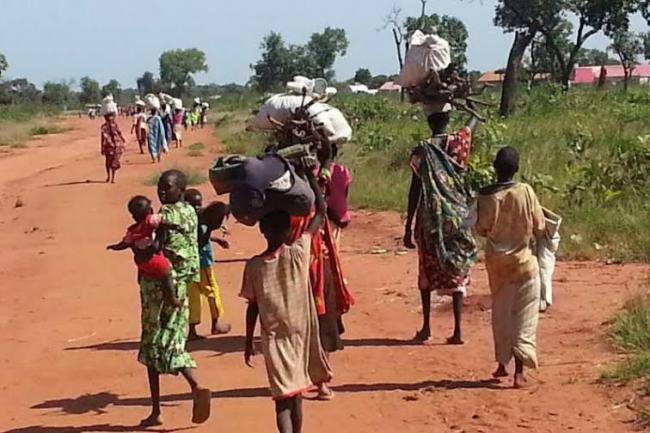31 Jan 2015, 07:27 am Print

With arrival rates exceeding 500 people per week, this represents an increase of more than 100 percent compared to the same period of 2013, William Spindler, spokesman at the office of the UN High Commissioner for Refugees (UNHCR), told reporters at a Geneva press briefing.
“Since 23 December last year, more than 3,000 refugees from South Kordofan and Blue Nile States have arrived at Yida border town, a spontaneous settlement in South Sudan's Unity State already sheltering some 80,000 Sudanese refugees,” he added.
“If the current rate of arrivals continues, more than 15,000 refugees may arrive by June 2015 and UNHCR is concerned that current funding may be inadequate to meet the needs of additional refugees, exceeding the original planning figure of 25,000,” Spindler warned.
He said that refugees, mainly from Um Dorrein, Heiban and Delami Counties have told UNHCR that they escaped widespread violence in Sudan's Nuba Mountains region. “Refugees have also cited the lack of livelihood opportunities and education in their areas of origin as reasons for leaving. The majority arrived in trucks while others came on foot. Nearly 70 percent of new arrivals are children, and an estimated 10 percent suffer from malnutrition and measles.”
At the Yida transit centre managed by Africa Humanitarian Action and the International Red Cross, UNHCR and its partners provide initial reception and assistance to the new arrivals, including hot meals. Refugees are medically screened and receive a measles vaccination.
UNHCR is also registering all new arrivals to ensure that refugees can be identified quickly and are able to access assistance. To date, more than 80 percent of new arrivals have been transported from Yida to Ajuong Thok, a camp established in March 2013 to ease overcrowding in the Yida settlement.
But with 18,000 Sudanese refugees already living in Ajoung Thok, the camp has almost reached its full capacity of 25,000 people. There is an urgent need to improve current infrastructure as well as education and shelter.
“We are working with the Government of South Sudan to identify a site to set up a new camp in Unity State in preparation for any more arrivals,” the UNHCR spokesman said.
South Sudan is currently home to nearly 250,000 refugees, mostly from Sudan and more than 1.8 million internally displaced people.
Also today, the UN Assistant Secretary-General for Human Rights, Ivan Simonovic, announced that he will visit South Sudan from 1 to 6 February to assess the human rights situation.
During his trip, Simonovic will seek updates on progress in investigations of human rights violations committed since the resumption of fighting in December 2013 that have resulted in the killing of thousands of civilians and internal displacement of over a million people. He will also discuss ways to prevent future violations.
The Assistance Secretary-General is scheduled to meet with a number of government officials as well as civil society actors in Juba, South Sudan's capital. He is also scheduled to visit Bentiu, Malakal and Rumbek.
This is Simonovic's second visit to South Sudan. He first visited in January 2014.
Photo: UNHCR/S. KuirChok
- Viral Irish food bank photo sparks shocking racist attacks on Indians
- Caught on camera: Two foreigners assaulted in Israel in an alleged racial attack
- Pakistan: Parents heartbroken after court sides with man accused of kidnapping minor Christian girl
- Pakistan: Trafficked 35 years ago, Bangladesh-born woman approaches court against FIA for offloading her from flight!
- Hindu tea worker found bound and bloodied in Bangladesh garden during general elections; investigation underway





-1763561110.jpg)
